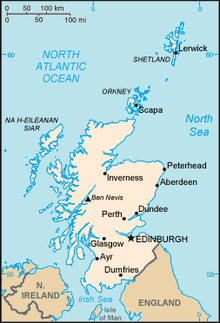I ask, because this was the question the First Minister of Scotland attempted to answer last month. According to Ms Sturgeon, Scotland is “redefining what it means to be a successful nation”. She went on to say that people’s quality of life – “collective wellbeing” she calls it – should be as important as economic growth. Despite the political fog in her statements, I think I am just about with her on this. What is the point of producing and selling more and more widgets and doing so more efficiently and profitably, if the whole process leaves us miserable and unhealthy as a nation? The trouble, of course, is that “collective wellbeing” can be difficult to measure. Some people have tried. According to the Scottish Trends Index of Social and Economic Wellbeing, Scotland is in the bottom half of OECD countries.
The quality of wellbeing also depends on where you are standing when you attempt the measurement. I suspect that if the First Minister asked some of her fellow Scots living with mental health problems, drug addiction, long-term health conditions, or those caring for them, she might receive some uncomfortable answers. At least, that is, if she is serious about putting collective wellbeing out there as a measure of our success as a nation.
I have a dog in this fight. I live with a long-term condition: chronic stroke. Just over a year ago, I wrote an article for the Scottish Review in which I deplored the apparent decline of stroke care in Scotland compared to other parts of the world. I pointed out at the time that this was no fault of the clinicians and therapists who work in the system. In fact, many felt frustrated by it. They work within tight resource constraints and are combatting a serious health problem which, UK-wide, affects approximately 150,000 people of all ages each year for the first time. In Scotland it is a major cause of disability.
So, where are we one year on? Research into stroke in the UK still accounts for a mere fraction of the amount invested into the causes and treatments of other serious conditions such as cancer or dementia. While there are immediate treatments available for some of the strokes caused by blood clots to the brain – thrombolysis, in which clots are dissolved, and thrombectomy in which clots are removed mechanically – both procedures require skilled stroke clinicians and a strong workforce of qualified radiologists. These are currently in short supply. Both treatments are also time critical, which presents its own challenges.
amount invested into the causes and treatments of other serious conditions such as cancer or dementia. While there are immediate treatments available for some of the strokes caused by blood clots to the brain – thrombolysis, in which clots are dissolved, and thrombectomy in which clots are removed mechanically – both procedures require skilled stroke clinicians and a strong workforce of qualified radiologists. These are currently in short supply. Both treatments are also time critical, which presents its own challenges.
In Scotland there is underway a grindingly slow process to establish a nationwide thrombectomy service which would allow several hundred patients a year to avoid the long-term effects of stroke. Charities estimate this service could save between 600 and 800 Scots a year suffering physical disability and psychological impairment. Other parts of the UK and other advanced economies have forged ahead with developing thrombectomy services in recent years, while in Scotland not a single patient can at present benefit from this procedure. By this measure, then, the lives of several hundred Scots a year are being unnecessarily blighted by disability. Collective wellbeing?
More cheerful news, perhaps. In the draft budget presented to the Scottish parliament on 6 February, £1 million (out of a £15 billion budget) was set aside for the development of a stroke thrombectomy service. It has been estimated that this represents approximately 10% of the cost of establishing such a service nationwide, yet the potential long-term savings to health and social care services run into hundreds of millions, to say nothing of the possible improvements to “collective wellbeing”.
Where are the real priorities of the Scottish government? The same draft budget included an increase of £2 million for international affairs to a total of £26 million. International affairs are reserved to the UK government, so are not technically a responsibility of the Scottish government at all (although they allow Ms Sturgeon to grandstand all over the place). Imagine what could be achieved if a slice of that budget was to be invested in acute stroke care or other long-term conditions. Collective wellbeing?
Hospital treatment, however good, will still mean that most survivors of a major stroke  will require long-term support, from family and friends and from state provided social care. Many stroke survivors leaving hospital – especially those of working age – describe the feeling of being discharged from hospital as akin to falling off a cliff. This is despite the worthy intentions of the new health and social care integration structures, which, though eminently desirable, are proving patchily successful at best. In the absence of long-term therapy, a large proportion of stroke survivors succumb to depression. Those who can afford to do so frequently end up paying for the physical or psychological therapies they require, further exacerbating the health inequalities that plague Scotland. Collective wellbeing?
will require long-term support, from family and friends and from state provided social care. Many stroke survivors leaving hospital – especially those of working age – describe the feeling of being discharged from hospital as akin to falling off a cliff. This is despite the worthy intentions of the new health and social care integration structures, which, though eminently desirable, are proving patchily successful at best. In the absence of long-term therapy, a large proportion of stroke survivors succumb to depression. Those who can afford to do so frequently end up paying for the physical or psychological therapies they require, further exacerbating the health inequalities that plague Scotland. Collective wellbeing?
I have concentrated on stroke, because it is an area I know only too painfully well. I know that the challenges I have described for staff and patients are mirrored in other long-term conditions, but I believe they are challenges that a successful nation should be striving more robustly to overcome – if, that is, it is serious about “collective wellbeing”.
A version of this post appeared in the Scottish Review on 12 February 2020. In the same issue I recommend the article by Josh Bain, about attitudes to disability.

